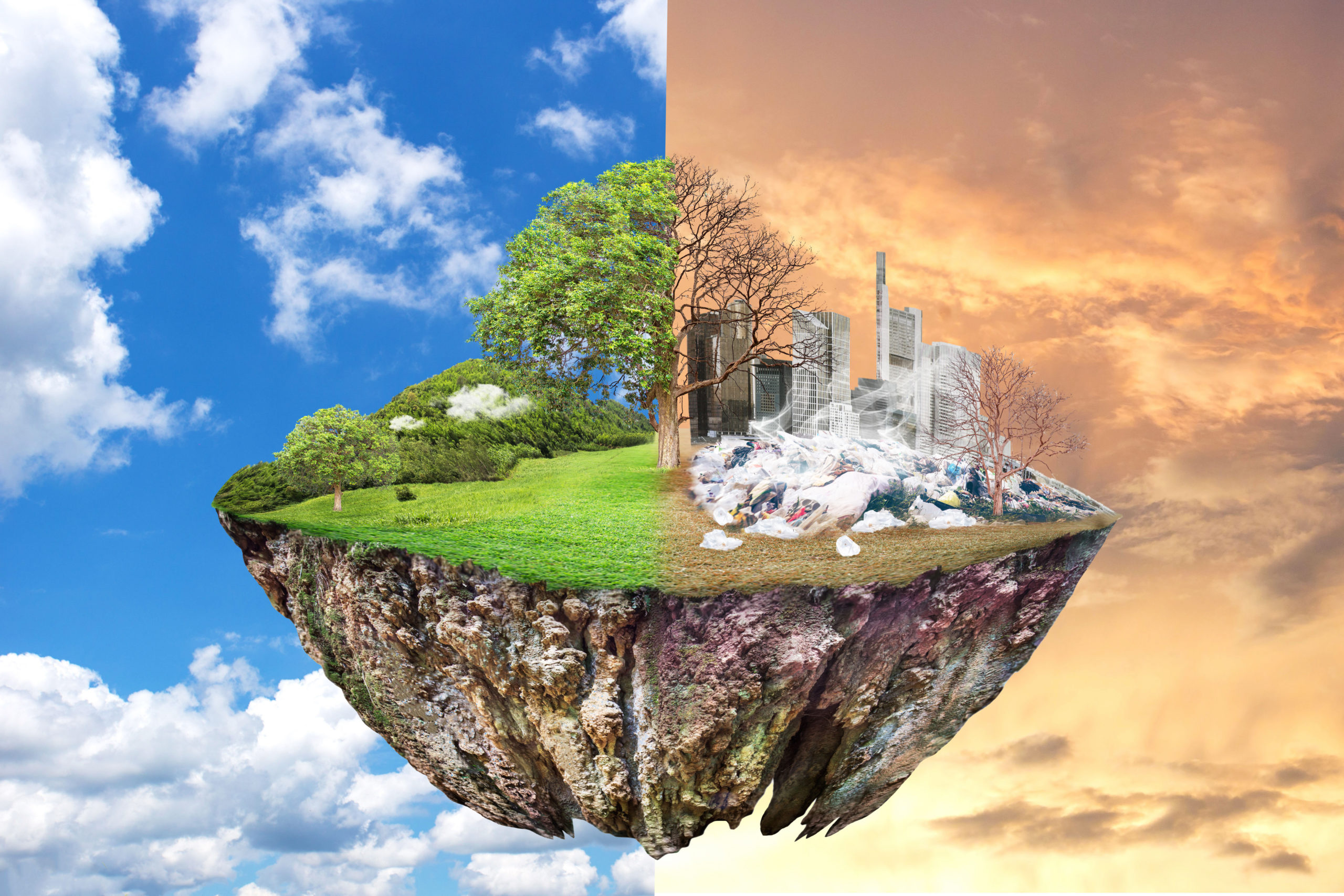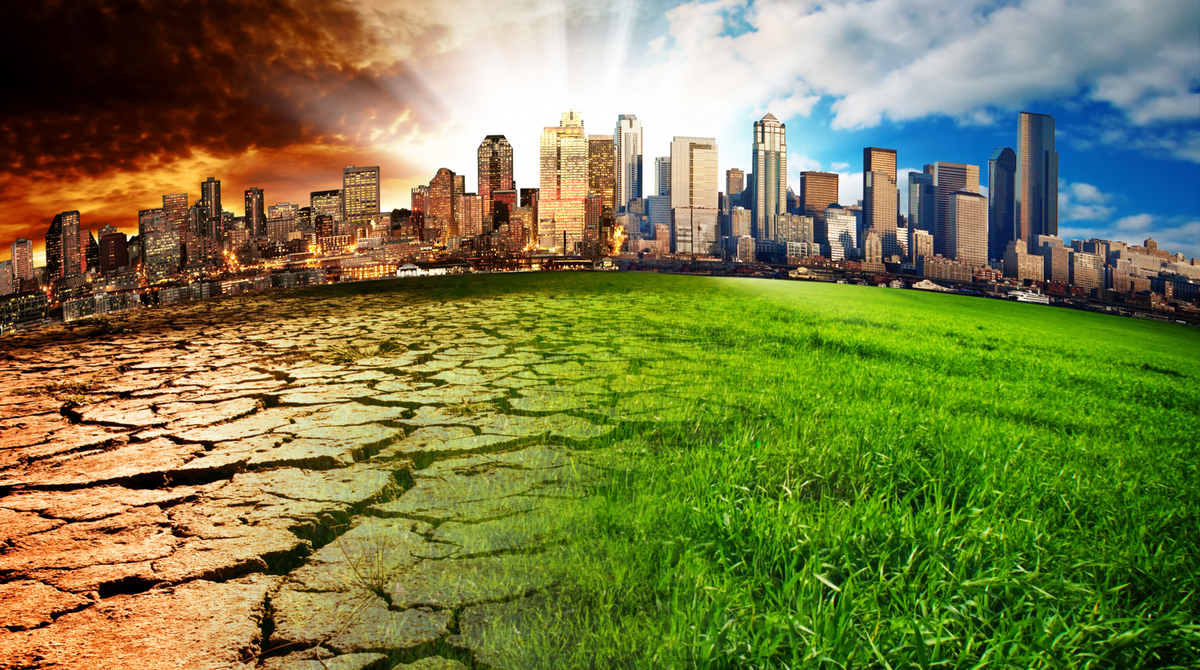The relationship between artificial intelligence (AI) and climate change has garnered increasing attention and recognition in recent years. The pressing challenges posed by climate change, including rising temperatures, extreme weather events, and environmental degradation, have compelled us to seek innovative solutions to mitigate and adapt to these impacts. In this context, the emergence of AI as a transformative technology holds immense promise for revolutionizing our efforts toward a more sustainable and resilient future.
At the core of this symbiotic relationship between AI and climate change lies the potential to reshape our approach to environmental sustainability. AI offers a wide array of creative ideas and practical solutions that can augment our strategies across various domains, from upgrading renewable energy systems to enhancing climate modeling and prediction.
The Link Between AI and Climate Change
 One of the primary areas where AI has demonstrated exceptional potential is in improving energy systems and enhancing the efficiency of renewable energy sources. Energy grids may be intelligently controlled by leveraging the power of AI algorithms, allowing for the integration of varied energy sources such as solar, wind, and hydropower. Artificial intelligence-powered devices can evaluate real-time data, estimate energy demand, and make intelligent decisions to ensure efficient energy generation and distribution while minimizing waste and lowering dependency on fossil fuels.
One of the primary areas where AI has demonstrated exceptional potential is in improving energy systems and enhancing the efficiency of renewable energy sources. Energy grids may be intelligently controlled by leveraging the power of AI algorithms, allowing for the integration of varied energy sources such as solar, wind, and hydropower. Artificial intelligence-powered devices can evaluate real-time data, estimate energy demand, and make intelligent decisions to ensure efficient energy generation and distribution while minimizing waste and lowering dependency on fossil fuels.
AI developments have also aided in climate modeling and prediction. Artificial intelligence systems can handle massive volumes of climate data, allowing scientists to create more accurate models and simulations of future climate scenarios. This improved forecasting power helps policymakers make educated judgments about climate adaptation and mitigation policies. AI can also improve early warning systems for extreme weather occurrences, allowing communities to better plan for and respond to possible disasters.
Furthermore, AI is critical in the monitoring and management of natural resources. Satellite imaging and remote sensing data may be evaluated using machine learning algorithms to track deforestation, monitor air and water quality, and detect changes in ecosystems. This allows for prompt responses to avert environmental damage and protect biodiversity.
AI indirectly promotes climate action by supporting the development of smart cities and sustainable transportation systems, in addition to its direct uses. In metropolitan regions, AI-powered algorithms can optimize traffic flow, minimize congestion, and enhance energy efficiency. Intelligent transportation systems can promote electric vehicle use, carpooling, and improved urban design to reduce carbon emissions.
While AI has enormous potential for solving climate change, it is critical to address ethical concerns and potential hazards. To guarantee the appropriate and unbiased use of AI technology, safeguards must be in place. Transparency, accountability, and privacy protection are critical when employing artificial intelligence for climate-related applications.
On the other hand, the integration of AI technology in addressing climate change has implications for the labor force and job market. While AI offers opportunities for enhancing efficiency and productivity, it also raises concerns about potential job displacement and shifts in employment patterns.
 As AI systems automate some jobs and procedures, established businesses that rely primarily on manual labor may face employment losses. AI-driven innovations, for example, may ease energy production in the shift to renewable energy, decreasing the need for labor-intensive fossil fuel extraction. This shift might have a significant impact on communities that rely largely on traditional energy industries, necessitating steps to promote an equitable and inclusive transition for impacted employees.
As AI systems automate some jobs and procedures, established businesses that rely primarily on manual labor may face employment losses. AI-driven innovations, for example, may ease energy production in the shift to renewable energy, decreasing the need for labor-intensive fossil fuel extraction. This shift might have a significant impact on communities that rely largely on traditional energy industries, necessitating steps to promote an equitable and inclusive transition for impacted employees.
However, the use of AI in climate change activities generates new job possibilities and necessitates the availability of a competent workforce. AI technology creation, implementation, and maintenance need competence in data analysis, algorithm design, and system optimization. As AI is incorporated into more industries, there will be a greater need for experts who understand AI applications in the context of climate change. This provides a chance for people to upskill and reskill in order to meet the changing needs of the green economy.


 The theory and application of sustainability in the automotive industry involves a focus on reducing the negative impact of the industry on the environment, while still maintaining the industry’s economic viability. This involves a range of initiatives aimed at reducing waste, emissions, and resource consumption.
The theory and application of sustainability in the automotive industry involves a focus on reducing the negative impact of the industry on the environment, while still maintaining the industry’s economic viability. This involves a range of initiatives aimed at reducing waste, emissions, and resource consumption. Despite the challenges facing the automotive industry, there are many efforts being made to create a more sustainable future. These efforts include government regulations, industry initiatives, and consumer demand.
Despite the challenges facing the automotive industry, there are many efforts being made to create a more sustainable future. These efforts include government regulations, industry initiatives, and consumer demand.






/img/iea/rV6nV2Zm6X/istock-480500124.jpg) To ensure that present and future generations are able to meet their needs, it is urgent that all States and pertinent actors:
To ensure that present and future generations are able to meet their needs, it is urgent that all States and pertinent actors: 

 Below you will find all the principles brought forward in the meeting.
Below you will find all the principles brought forward in the meeting. 
 I’m not a Christian environmentalist – even if I find their theories very interesting – but, I think when you are a believer and follower of Christ, you are called to understand God’s creation and be good stewards of nature. However, there are many individuals with a deep Christian faith who think that
I’m not a Christian environmentalist – even if I find their theories very interesting – but, I think when you are a believer and follower of Christ, you are called to understand God’s creation and be good stewards of nature. However, there are many individuals with a deep Christian faith who think that